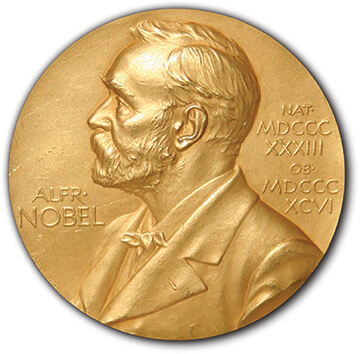 The 2017 Nobel Prize in Physiology or Medicine was jointly awarded Oct. 2 to Jeffrey C. Hall, Michael Rosbash and Michael W. Young for their discoveries of molecular mechanisms controlling the circadian rhythm, the internal biological clock. Hall joined the faculty at Brandeis University in 1974. From 2004–12, he was an adjunct professor at UMaine, and was a Libra Professor of Neurogenetics from 2008–10.
The 2017 Nobel Prize in Physiology or Medicine was jointly awarded Oct. 2 to Jeffrey C. Hall, Michael Rosbash and Michael W. Young for their discoveries of molecular mechanisms controlling the circadian rhythm, the internal biological clock. Hall joined the faculty at Brandeis University in 1974. From 2004–12, he was an adjunct professor at UMaine, and was a Libra Professor of Neurogenetics from 2008–10.
Rosbash is from Brandeis University; Young from Rockefeller University.
At UMaine, Hall collaborated with Harold “Dusty” Dowse, a professor of biological sciences, whose early work also involved circadian rhythm in the common fruit fly, Drosophila melanogaster. Dowse used the insect’s modeling of fundamental mammalian biology to seek clues to human disease and development.
Hall and Dowse were frequent co-authors on leading journal articles. One of their first was with UMaine biologist John Ringo in 1987 in the journal Behavior Genetics. Hall and Dowse also were among the co-authors of articles related to Drosophila circadian rhythm in Nature and Science in 2001 and 2002, respectively.
Dowse also focused on heart movements in the fruit fly to understand the cardiac pacemaker and mutations that affect ion channels, cellular gatekeepers critical to an organism’s nervous and muscular systems. Dowse and his colleagues identified two ion channels that constitute the core of the Drosophila pacemaker.
Mutations in two genes originally discovered in fruit flies were proven to underlie cardiac disorders in humans. Recently, Dowse and a co-worker showed that melatonin substantially increases heartbeat regularity in the fly.
At the time of their collaboration at UMaine, Hall and Dowse were studying the complex Drosophila courtship songs, with a focus on the cacophony mutation. Male fruit flies with the mutation have a harsh mating song, as well as an ion channel defect that affects heartbeat frequency and regularity.
The Nobel Laureates used fruit flies as a model organism to isolate a gene that controls the biological clock that helps living organisms, including humans, “anticipate and adapt to the regular rhythm of the day.” The discoveries of the three researchers “explain how plants, animals and humans adapt their biological rhythm so that it is synchronized with the Earth’s revolutions,” according to the Nobel Assembly at Karolinska Institutet in its announcement.
